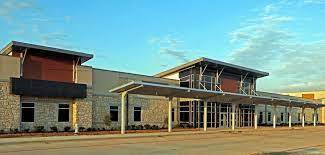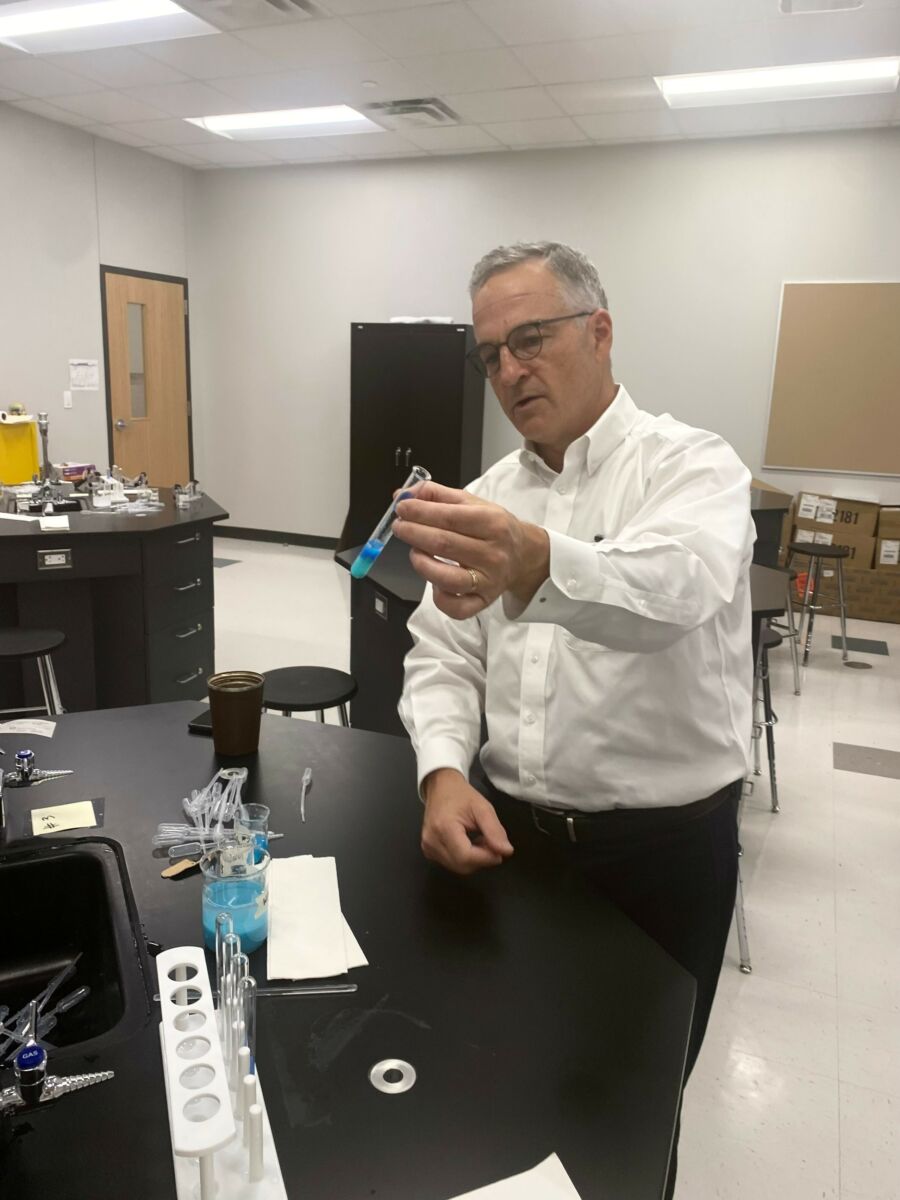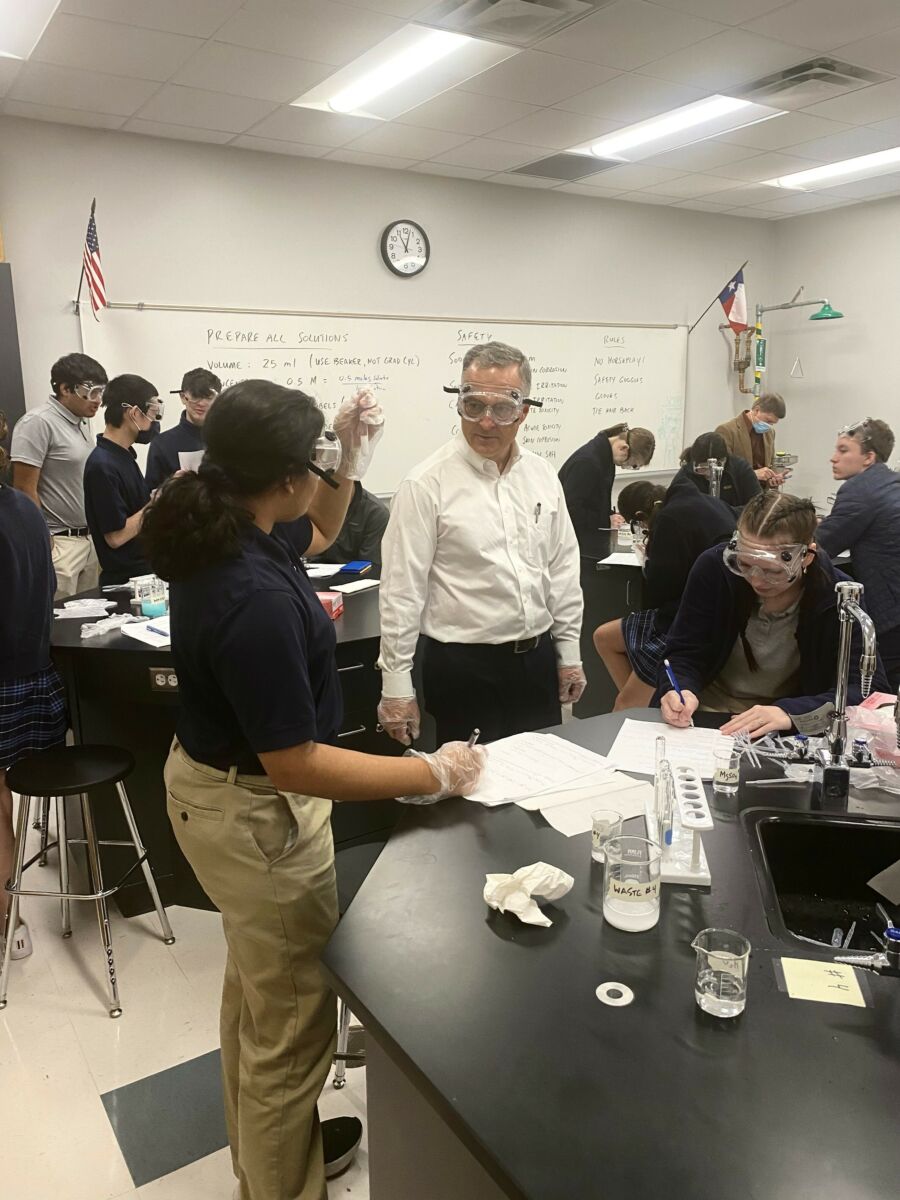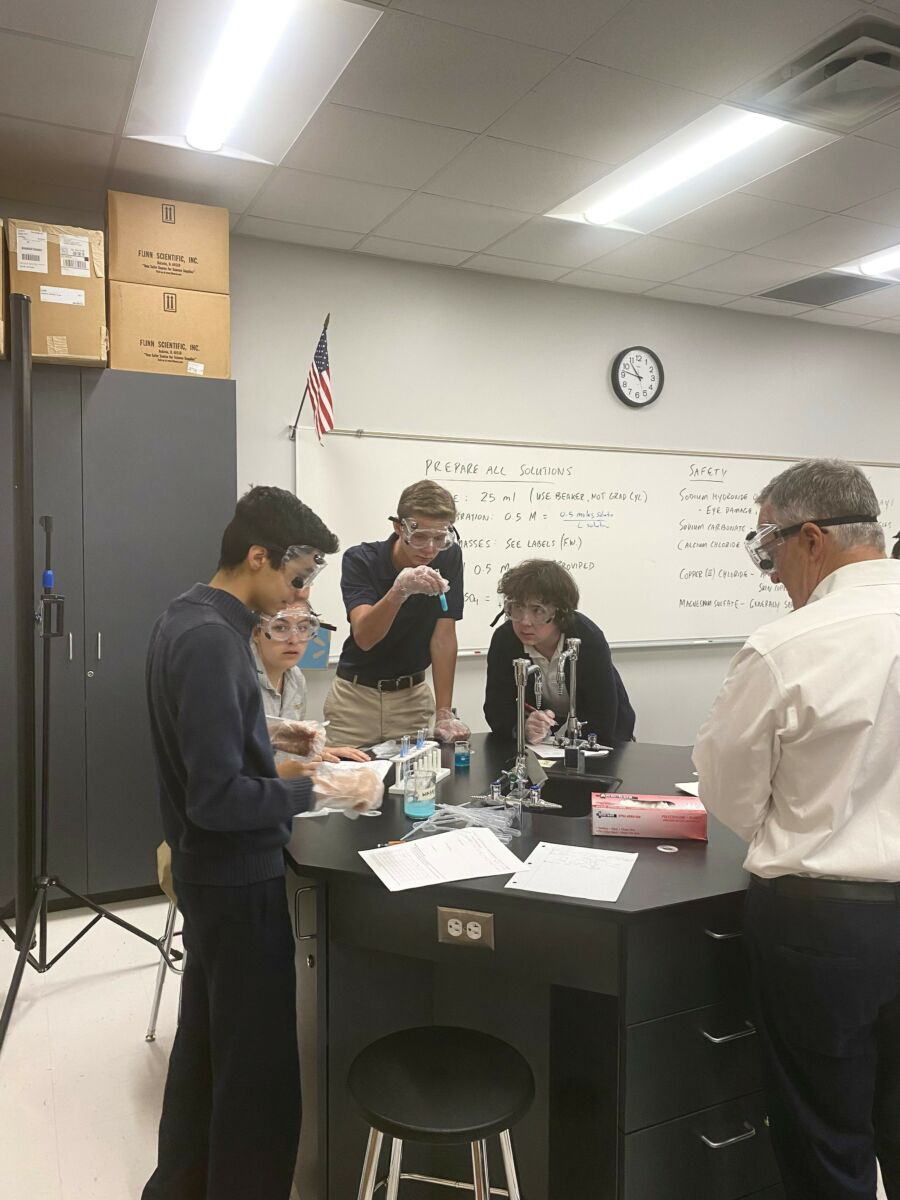What does a modern chemistry class have to do with classical education? Founders Classical Academy teacher Myles Dempsey doesn’t even pause for a moment: “Everything.”
Students have just filed out from lab class, where they performed experiments with salt solutions. Mr. Dempsey is preparing for his next class.

“Don’t you see?” he asks. “We’re in a world full of dogma. We’re being told what to believe, and to fit the data in to support that. That’s dogma.”
By the time students at his Flower Mound, Texas campus get to his 10th grade class, they’ve already had logic—and they know the difference between inductive and deductive logic. 
“They’re used to deductive reasoning, and this is the opposite. It’s inductive reasoning. We start with data and move up to theory,” he explains. “Then we test the theory—just as we did today. Does the outcome match what we predicted in class yesterday? Students experimented today, and found that it did.”
American society and culture are filled with appeals to authority, Mr. Dempsey says. For example, throughout the COVID-19 pandemic, we’ve been told to “trust the science.” Dr. Anthony Fauci, the president’ chief medical advisor, at one point even claimed “I represent the science,” and that anyone who questions his claims is “really criticizing science.”
“That’s not science, that’s dogma,” Mr. Dempsey responds. “When we teach science in a classical school, we start with the history of science—how the thinking developed. We read Robert Boyle (1627-1691), we read Antoine Lavoisier (1743-1794). We read [Boyle’s] ‘The Skeptical Chymist.’ We teach students you have to be skeptical.”

Mr. Dempsey is an unlikely high school chemistry teacher; he and his wife ran and sold an industrial gasses business. But because of a noncompete clause he signed as part of the sale, he found that he had time on his hands and a growing interest in classical education. Soon, he decided to devote more of his resources—including his time—to classical education.
“And, my wife said I need to go get a job,” he admits with a smile (his wife stayed in the industry). “Maybe I was getting on her nerves.”
It was during a tour of a nearby Founders Classical Academy that the idea first came up.
“As we toured, I just happened to ask something like, ‘Besides money, what’s your greatest need?,’” Mr. Dempsey said. “And they said teachers. Well, I wasn’t allowed to work in my industry for a few years. So I asked, ‘If someone wanted to become a teacher, what would it take?’”
Because Founders is a public charter school, his qualifications (including a degree in chemical engineering from Purdue University and an MBA) were enough—with some additional teacher training.
The pandemic hit during his first year.
“That was rough,” he said. “I learned a lot by doing. And not doing it right sometimes.”
But he—and his students—persevered. And during his time in the classroom, Mr. Dempsey has become more and more confident in the classical model of education.
“We’re training the mind, and science is a great example of how we’re doing it,” he says. “This is the revolution. We’re not taking anyone’s word for it—it’s like Elon Musk says, ‘You should take the approach that you’re wrong. Your goal is to be less wrong.’ That’s a well-trained mind.”